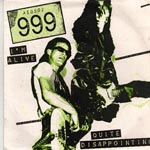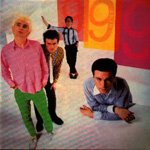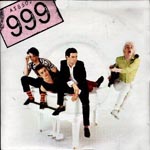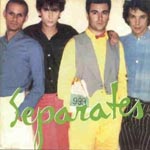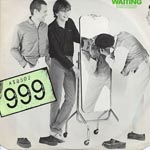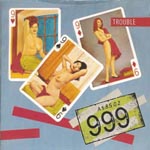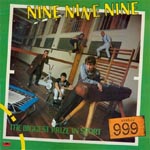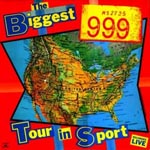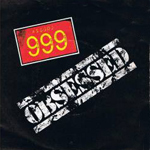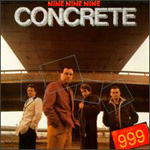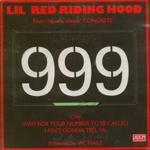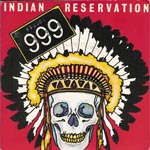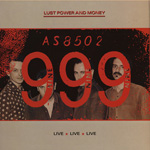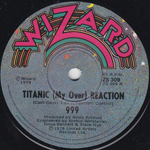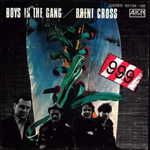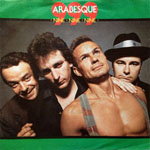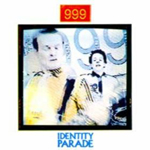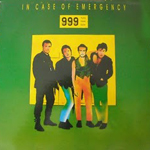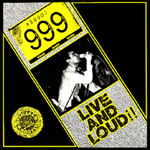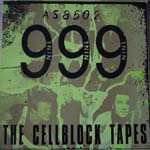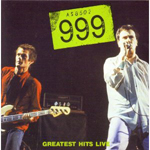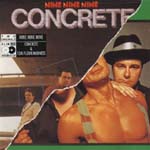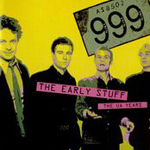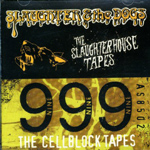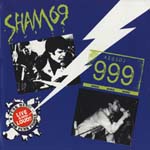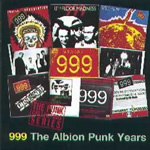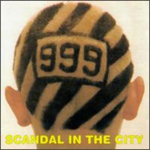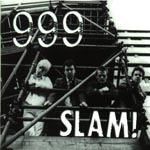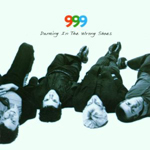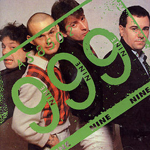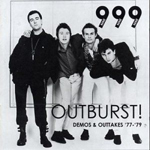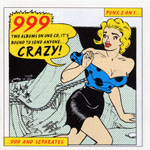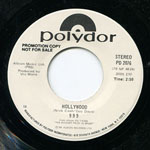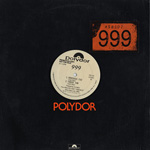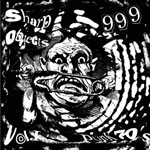Formed: London, England, UK
Band Bio / Discography
Ex-Kilburn & the High Roads' guitarist Keith Lucas (calling himself Nick Cash) and company had the dubious smell of chancers, but that didn't stop them making some pretty darned fine records, at least during that short period when they were at their peak. Originally naming themselves 48 Hours after The Clash song (drummer LaBritain was an old public schoolfriend of Joe Strummer and had drummed for The Clash for a short while), they adopted the 999 moniker (presumably after ‘London's Burning') and came up with their distinctive raffle ticket logo, a design that in its small way is one of the most memorable images of 1977.
This original lineup was (and remained until 1985):
Nick Cash - vocals, guitar
Guy Days - guitar, vocals
Jon Watson - bass
Pablo Labritain - drums
Dressed in colourful clothes and playing energetic, choreographed stage shows, they quickly became one of the most popular bands on the scene, issuing an independent single in 1977, the manic I'm Alive, on Labritain's label before the inevitable major label deal. It's a classic.
ABOVE: Belgian picture sleeve for Emergency; and the super-rare 1978 promo version of Nasty, Nasty, which plays as 78 r..p.m.
ABOVE: Nasty, Nasty - Picture Sleeves from France and Holland
Containing debut single ‘I'm Alive', the urgent ‘Emergency' (which many would consider their crowning glory), the breathless ‘No Pity' (the flip of their second single, Nasty Nasty) and ‘Me And My Desire', a decidedly un-sexy number with some winning vocals, 999 is a bit tame for a proper punk album but still a good record. Along with the better songs (i.e. the singles) are the sprightly ‘Chicane Destination' and ‘Hit Me'.
Far more substantial is Separates, a prodigious album that kicks off in a rockier direction and originally came with a voucher for a 12” single that paired the emphatic ‘Action' with the Pete Shelley-esque ‘Waiting'. As for the album itself, tougher production makes the band sound much more forceful, especially on the set's best two songs, the interestingly arranged ‘Homicide' (which was edited for a single) and the narcissistic ‘Feelin' Alright With The Crew', an intriguing venture into white reggae. Cash's knack for interesting, thoughtful, sometimes witty lyrics, first demonstrated on the debut, bears full fruit here. High Energy Plan is the American (and also Canadian) equivalent, aptly named after a song on that album, substituting two album cuts for the two 12” tracks and cutting ‘Crime' in half.
ABOVE: Picture sleeves from Japan - Separates LP and Emergency 7",
ABOVE: Picture sleeves from Holland - Emergency and Homicide
Freed from their deal with UA - record sales were poor - they retreated to Radar for one single, the insistent Found Out Too Late, a minor UK hit. On this release the band was expanded to a five piece with the temporary addition of Ed Case, because of an injury sustained by Labritain. UA/EMI issued The 999 Singles Album, a fifteen-track collection of all their singles for UA, and is undoubtedly the perfect introduction, even if it does place ‘I'm Alive' right near the end of side two, in keeping with the label's reissue program.
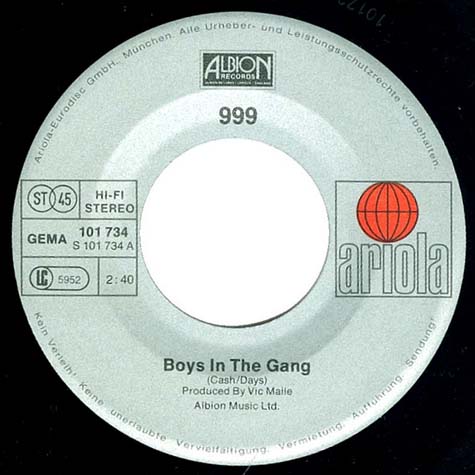
ABOVE: Two German releases
In late 1979 they signed to Polydor. Unfortunately, The Biggest Prize In Sport was a major duffer. The title track is as good as the LP gets, and that's quite some way behind the second LP: Cash's homage to waking up in the morning with an erection, it was apparently used as incidental music for the Olympics by some TV executives who were clearly unable to see past the title. The melodramatic ska-fest ‘Trouble' is fairly good without being exciting, and ‘Boys In The Gang' has since become a crowd favourite, despite sounding a bit gay. Everything else is low rent filler. Coinciding with this the group took off to America for a whirlwind tour and allegedly introduced the States to slamdancing, a somewhat dubious suggestion! A 12” EP, The Biggest Tour In Sport, was released over there at the same time, and stands as a well-recorded document of an exciting time.
Moving to Albion (home of Hazel O'Connor, the DB's and Pin Point), Concrete is a marked improvement over the previous album but it's still clear that they've lost a hell of a lot of ground to bands like The Exploited and Discharge. Outside of Cash's unmistakable whiny vocals the sound is faceless, and some of the songs are truly awful ('Bongos On The Nile' indeed), and covers of ‘Lil Red Riding Hood' and ‘Fortune Teller' are pointless (but preferable to much of the junk on the third album). It is partially redeemed by ‘Obsessed' (which shows the Ennio Morricone influence as filtered through Theatre of Hate), the chirpy ‘So Greedy' and ‘Mercy, Mercy', and the vaguely menacing pairing of ‘Taboo' and ‘Silent Anger', but the band is not particularly inspired. This period was moderately successful, with three singles - Obsessed, Lil Red Riding Hood and Indian Reservation - infringing on the lower reaches of the charts, but 1982's Wild Sun flopped, despite being a good song and being issued on both 7" and 12" on both yellow and red vinyl. (Below, right-ish: The Japanese version of Concrete)
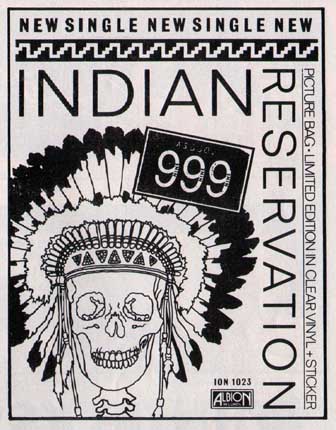
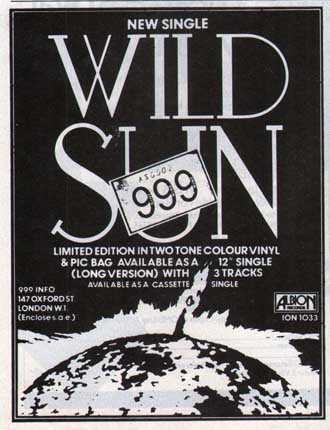
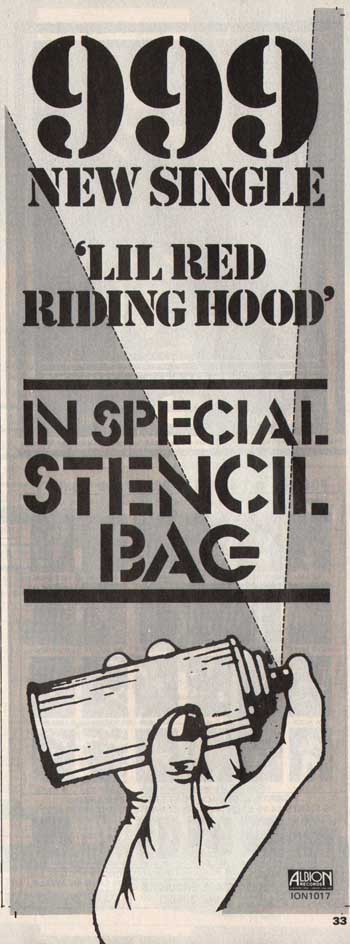
Continuing the downward spiral, 13th Floor Madness is their worst album by far, a poorly-produced stab at soft disco with eleven unbelievably boring songs. It completely alienated their audience and failed to secure them a new one. Believe me, this is much, much worse than the Angelic Upstarts' reviled Still From The Heart.
Face To Face isn't exactly pogo-tastic either, but it also happens to their strongest, most consistent album since 'Separates', despite sounding like barely produced demos. Part of it has a celebratory feel (‘Hallelujah', ‘Dancing On Me'), some of it looks at the state of the nation (‘20 Years') and some of it has a wistful yet somehow sinister undercurrent (‘Spiritual Independence', ‘Lucy Dead'). A far cry from their first couple of singles, but a rewarding album that has been too easily dismissed.
Jon Watson left soon after but the band soldiered on anyway, although they didn't venture into the studio for eight years. In the meantime the market was flooded with a series of compilations and live albums.
Lust Power & Money features Watson's replacement - Danny Palmer - and has most of their hits (as well as three songs unique to this record) but the playing is far too slow, making this concert recording a chore to sit through.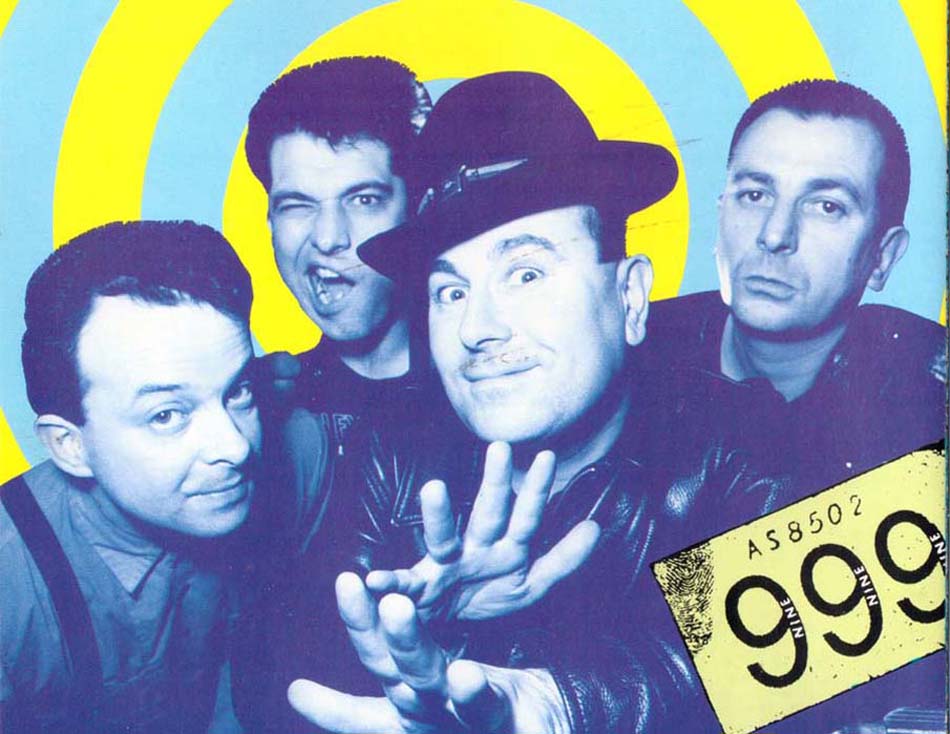
Nick Cash - vocals, guitar
Guy Days - guitar, vocals
Pablo Labritain - drums , vocals
Arturo Bassick - bass, vocals

